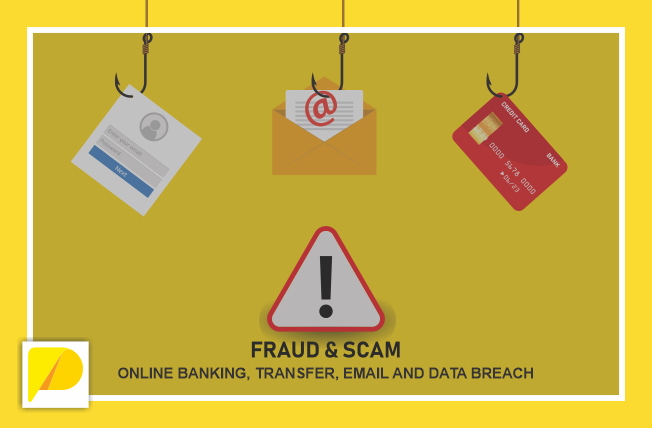
28 Feb SMS Scams: Avoiding SMiShing, Phishing, and Spam
If you or someone you know has felt the sting of an SMS (short message service) scam, then you need to read this.
Of course, scams are nothing new and you may have learned to avoid their lures because you have long since set spam parameters for your emails. Congrats! But the reality is that scammers are brilliant at what they do and they know exactly how to catch you.
Without giving up knocking on your email door with random, real-looking messages, cybercriminals have refocused their skills to your most vulnerable area – your phone.
Yes, ouch.
We know this hurts because besides encouraging sensible self-protection measures for consumers, businesses need to run super-secure Bulk SMS campaigns with the utmost attention to protection.
Shining A Light On SMS Scams
First, you need to know what you’re dealing with. Scammers are heartless. They play shamelessly on common human fears and vulnerabilities.
Add to that the fact that most phone users are multi-tasking when on their devices and are not always paying attention to the smaller details. The hackers and scammers know this only too well.
In the 17th century, author and physician Thomas Fuller said; ‘With foxes, we must play the fox.’ We are here to help you outfox the scammers. You can and indeed must protect yourself from SMS scams and a short read here will tell you how.
Phishing, Vishing, Smishing, and Spam – Which is Which?
Let’s first agree on terminology to avoid confusion. Herewith, are some definitions to memorise:
- Phishing – the practice of tricking Internet users (through the use of deceptive email messages or websites) into revealing personal or confidential information which can then be used illicitly.
- Vishing – aka voice phishing, is the fraudulent practice of using savvy social engineering tactics to convince victims to act, giving up private information and access to bank accounts. (We won’t focus on voice scamming, but thought you’d like to know.)
- SMiShing – is implemented through text messages or SMS (hence the portmanteau; ‘SMiShing’) to collect logins or other sensitive information with a malicious text message.
- Spam – unsolicited usually commercial messages (such as emails, text messages, or Internet postings) sent to a large number of recipients or posted in a large number of places.
For purposes of our discussion, all of the above constitute scamming. Two of the above specifically reference SMS scams; i.e. SMiShing and Spam.
Top 7 SMS Spam Scams in SA
Scammers spam you attractive offers such as debt relief, gifts, parcels or winnings coming to you, and cheap insurance offers. Spam SMS messages rattle you into thinking someone is taking your money, your SIM card has been cloned, or a hacker has found your sensitive information.
These scammers move with the times, but here are some long-standing favourites.
- OPT-OUT Scam – most lures are hidden in a CTA (Call To Action) such as replying ‘STOP’ to ‘unsubscribe’. Chief spam officer at SpamDoctor, Christian Shekleton warns; ‘Unfortunately, you are not helping yourself by opting out. You are just identifying yourself as a target.’
- ‘One Ring’ Scam – you’re alerted to a missed call and you call back and are charged a hefty fee to call that number. (P.S. usually an international number is used.)
- ‘Phone Charge’ Scam – knowing many network providers charge you for just receiving an SMS – whether you requested it or not, they generate unwanted charges from your phone.
- ‘Job Offer’ Scam – scammers pretend to have head-hunted you for a job but need you to pay a fee to secure the job.
- ‘Family Emergency’ Scam – An appeal for money to help a relative in difficulty.
- ‘Refund’ Scam – prompts to supply direct deposit information to refund something charged to you in error.
- ‘Admin Request’ Scam – an SMS alert that there is fraudulent activity on your bank account and request your personal details to secure. (Don’t ever give your personal details – ever!)
What Happens If You Open a Text From a Scammer?
By clicking on links in a spam SMS that you open, a door for malware is opened that gathers your personal information including your name, ID number, and credit information. Scammers pay that forward to identity thieves and marketers.
Don’t do it!
How To Keep Your SMS Campaigns Secure
‘Forewarned is forearmed’ was never more appropriate than in the war against SMS scams. Your scam-radar can never relax.
As a business trying to legitimately promote their products or services, you simply must be hyper-vigilant and know what’s happening in the world of scams. And of course, take no chances when it comes to any of your communications with current or potential customers.
Panacea Mobile are the ‘go-to people’ with impressive technology, simplified interfaces, and secure gateways for SMS, USSD, and Push notifications to keep your marketing automation campaigns safe and retain customer confidence.
Contact our team for more information on SMS campaigns and … stay safe.

Sorry, the comment form is closed at this time.